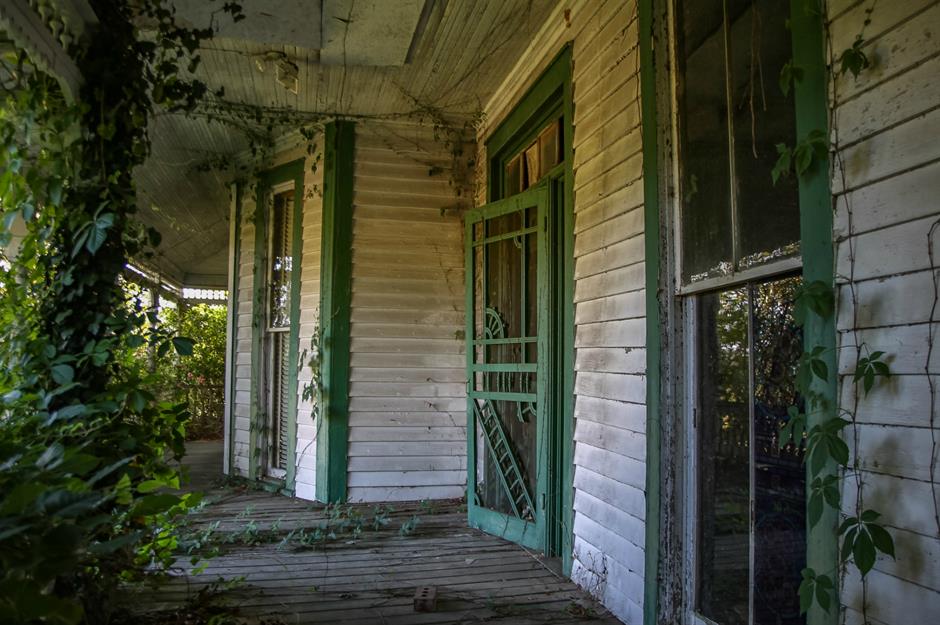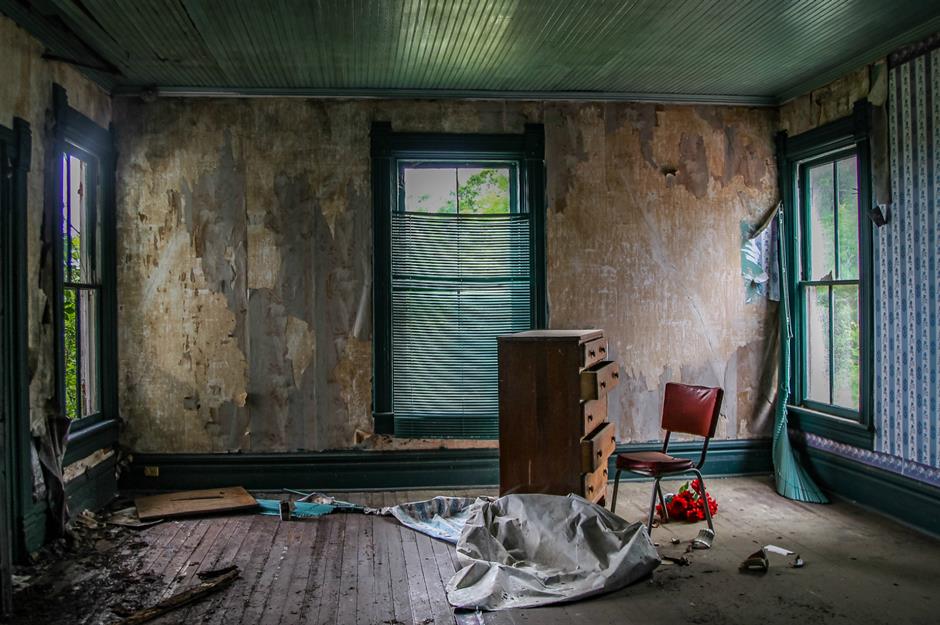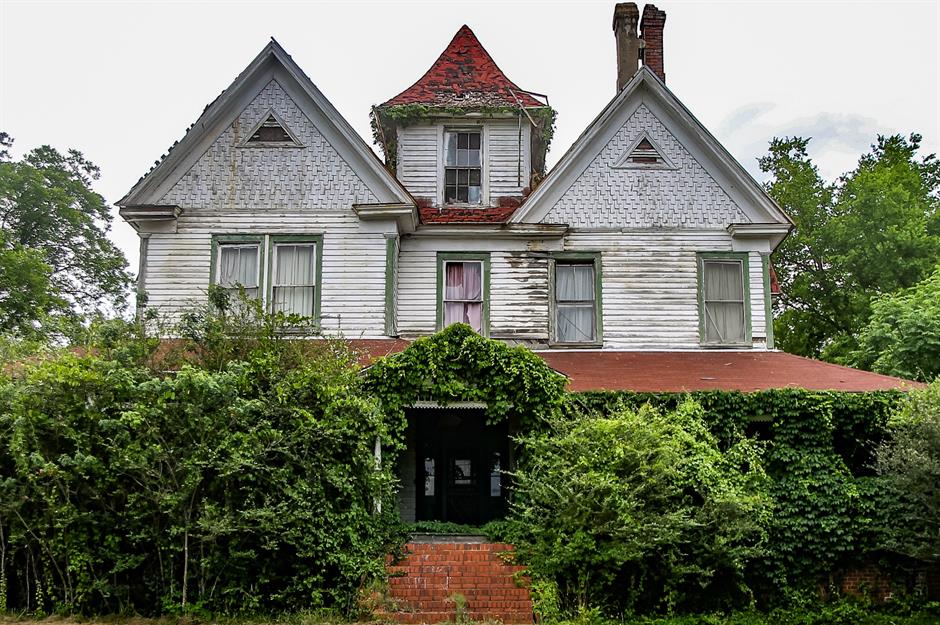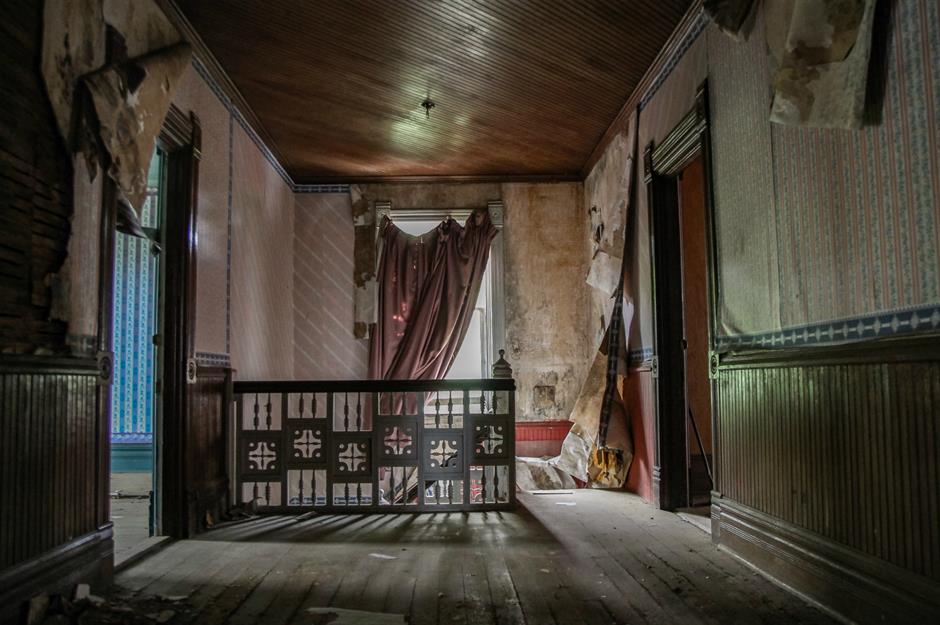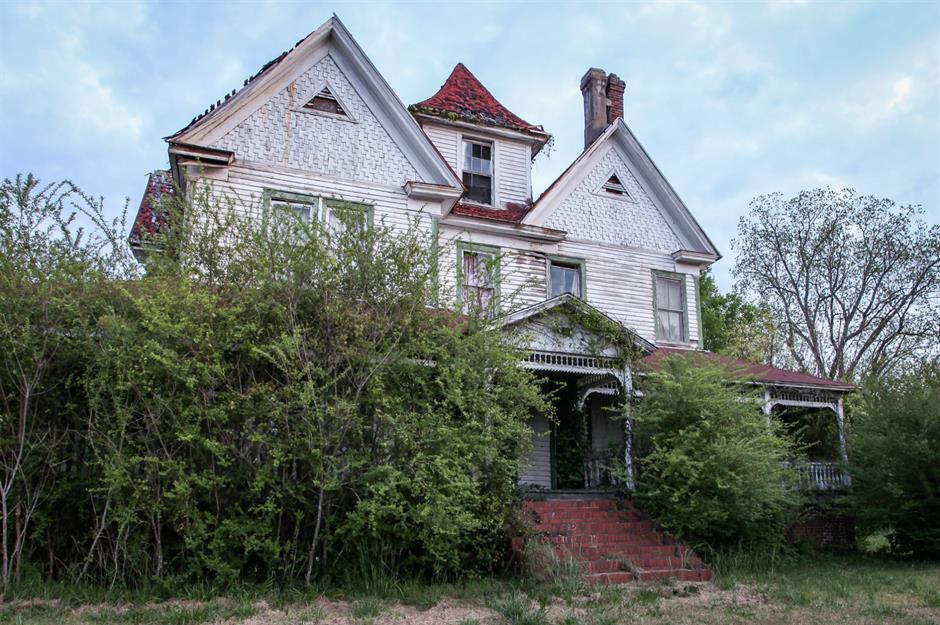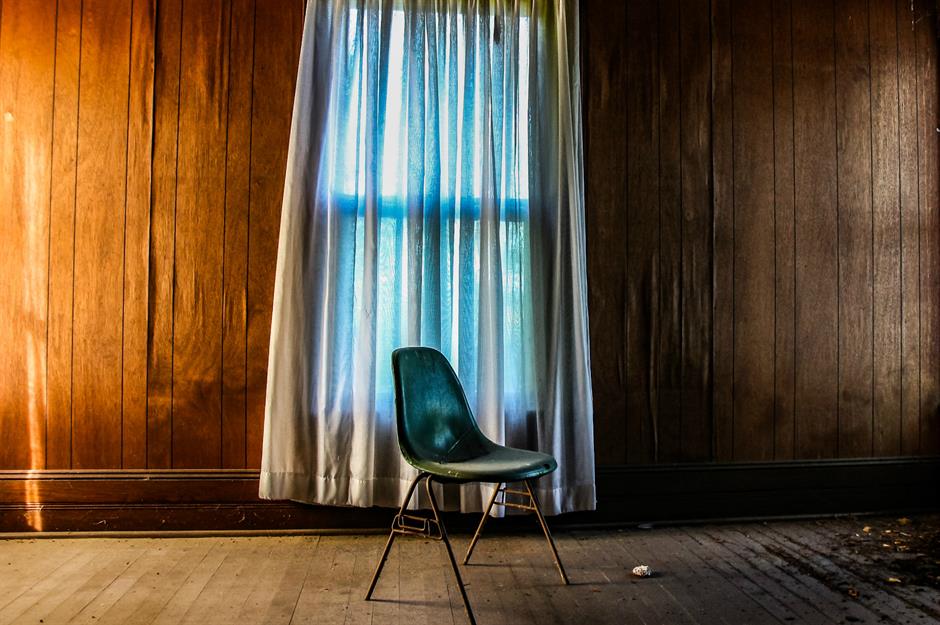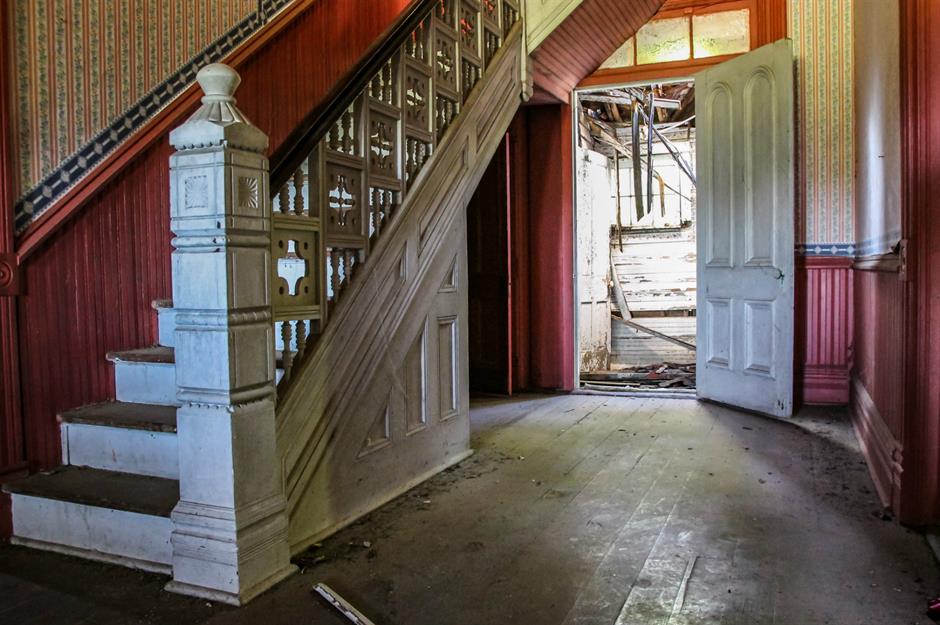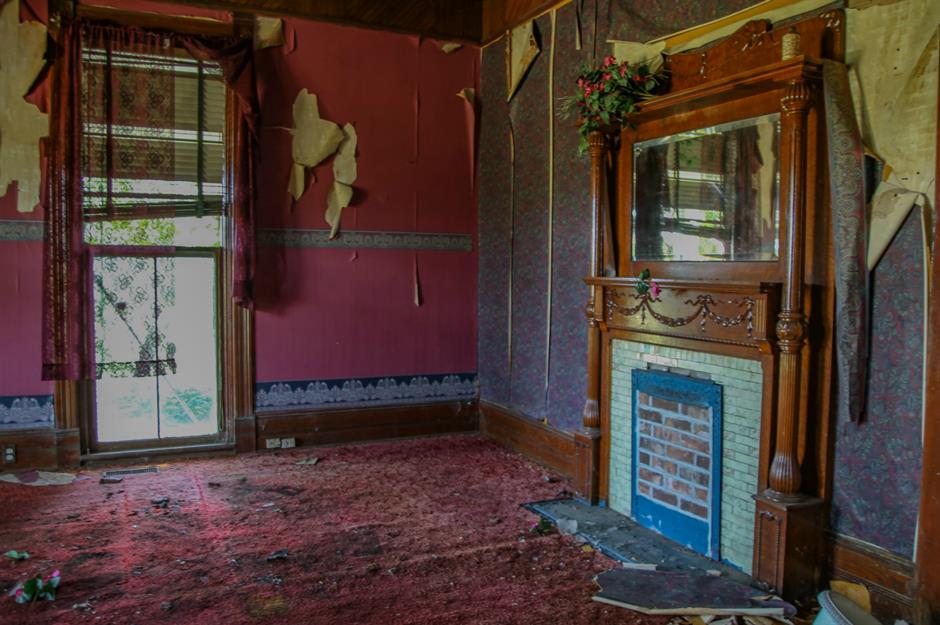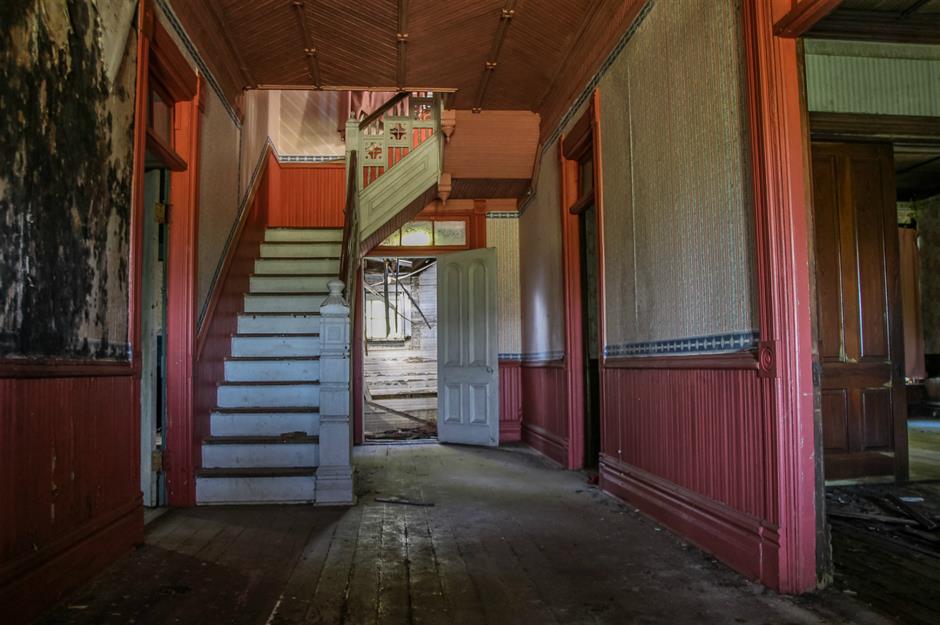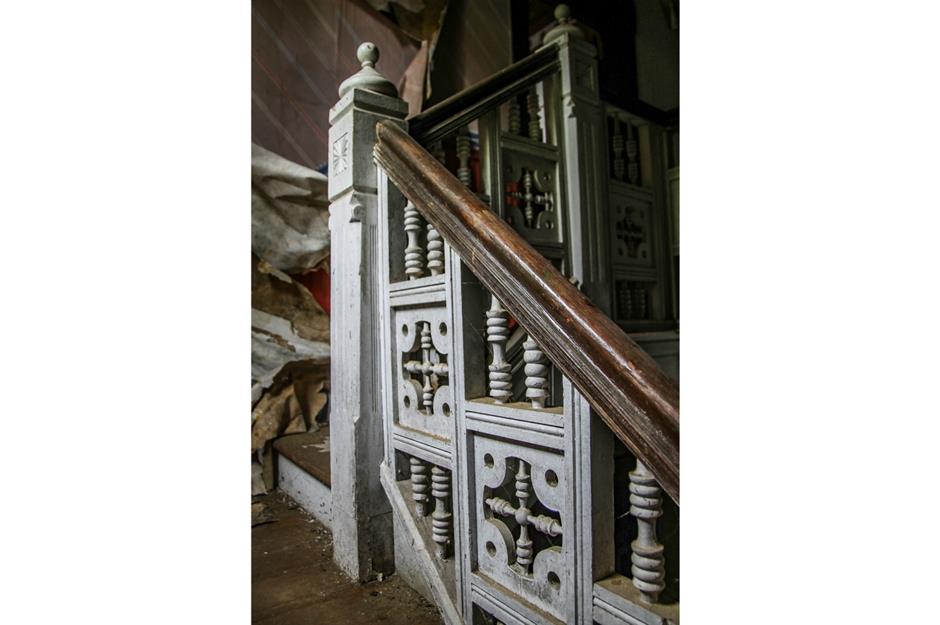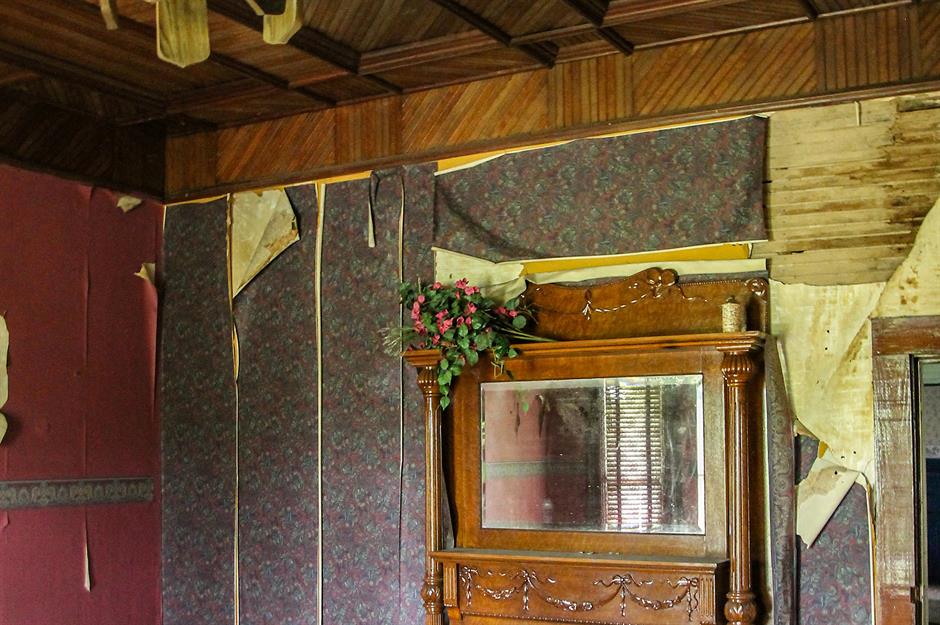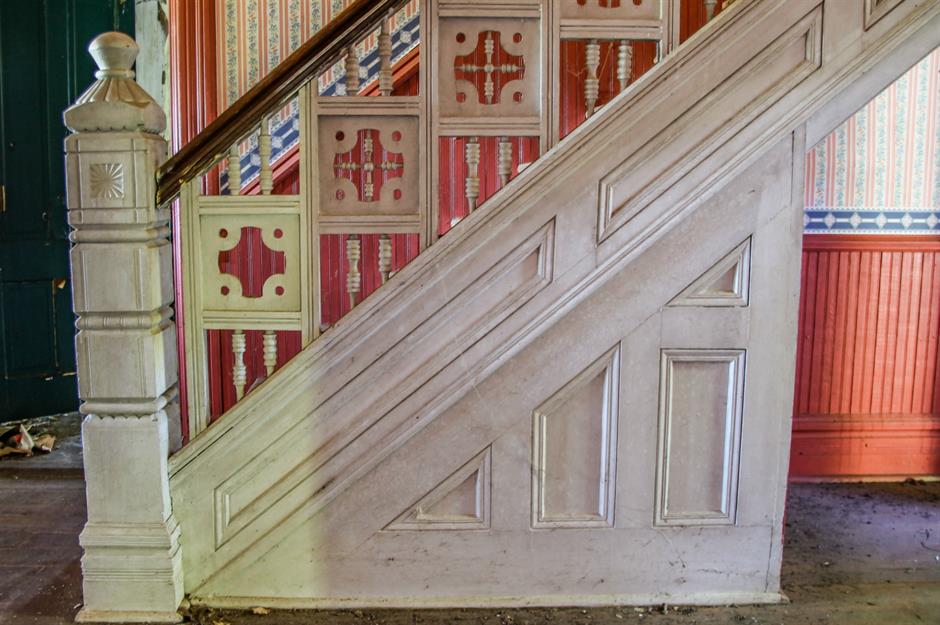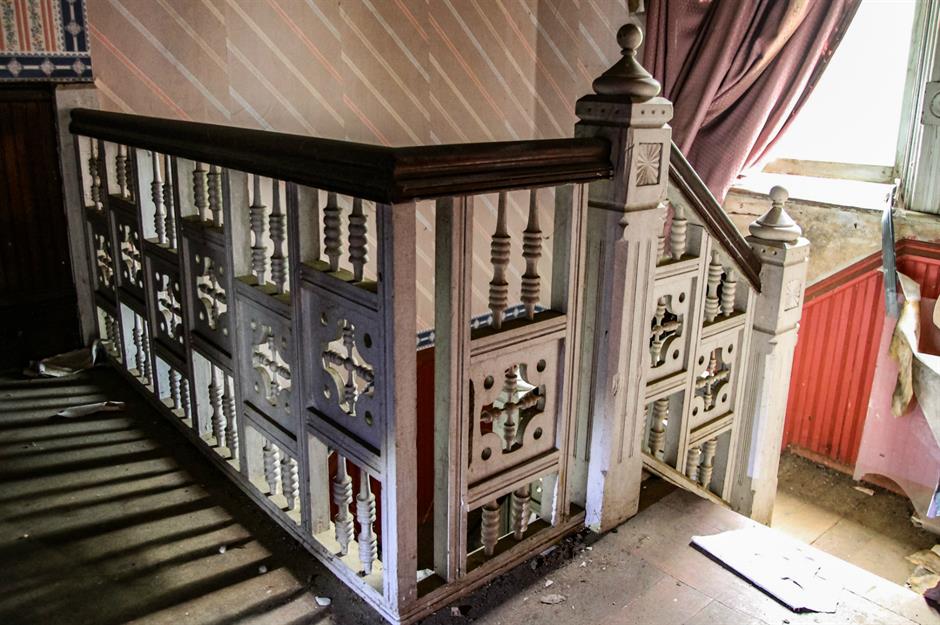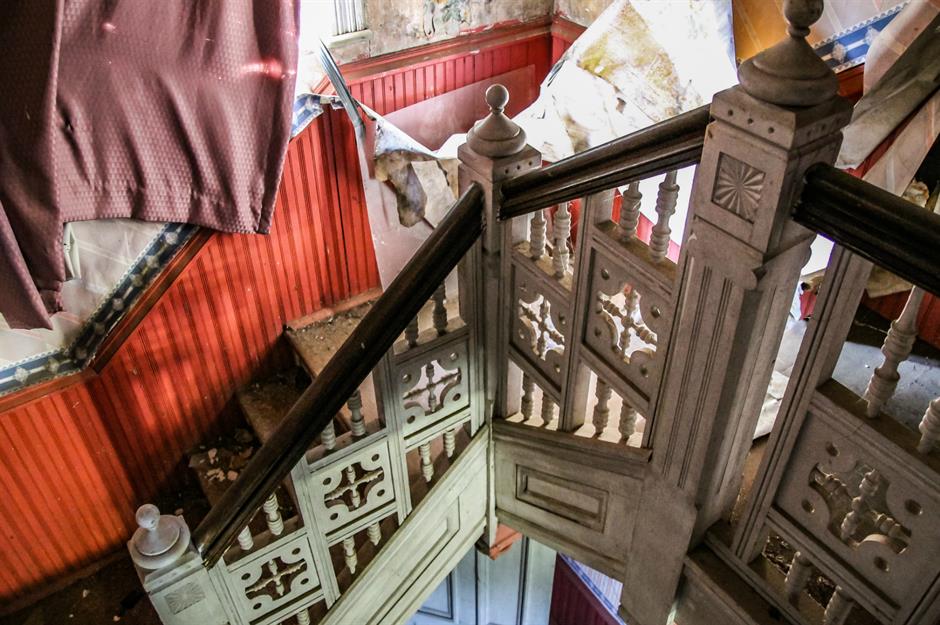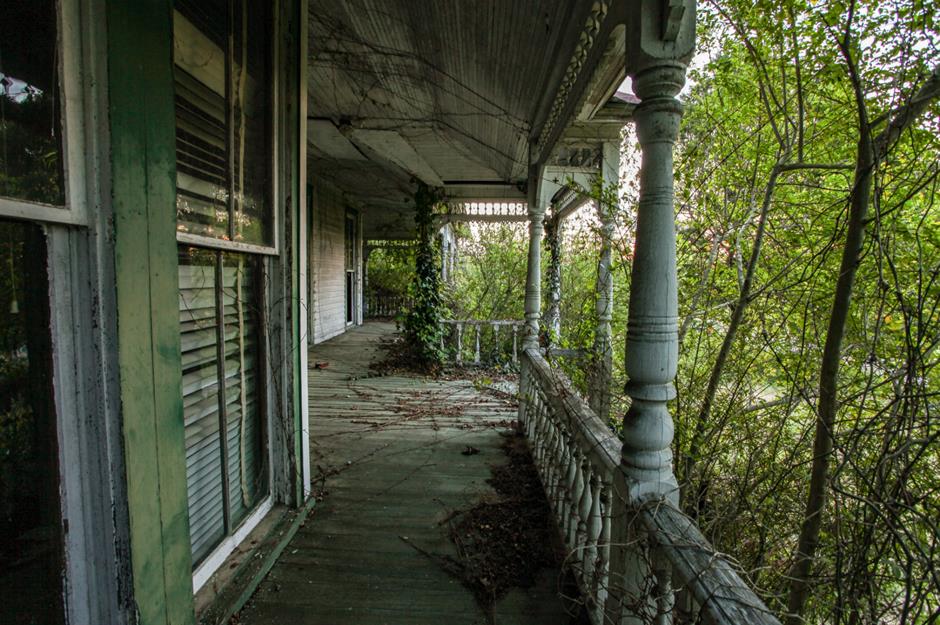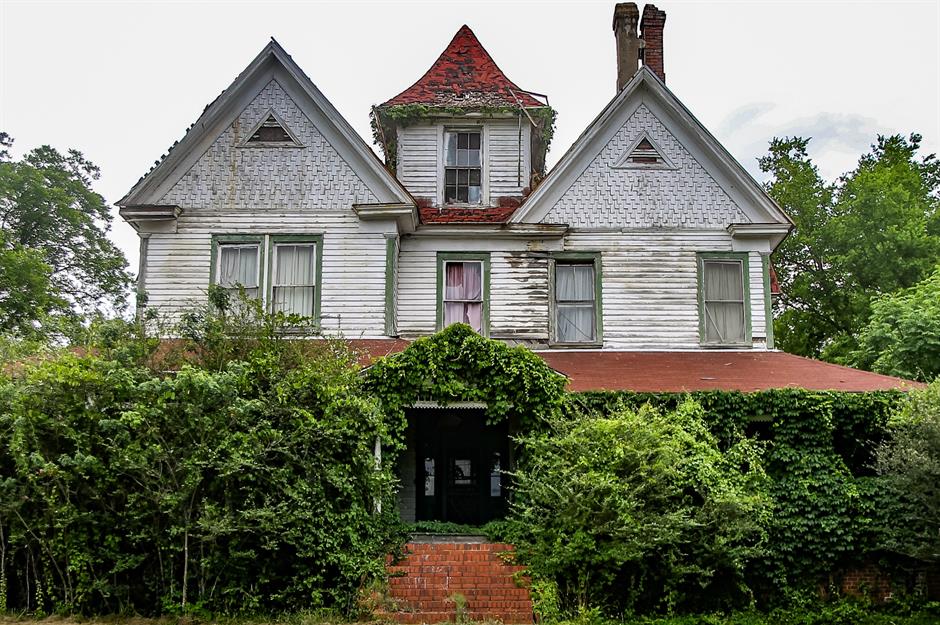Overview of the Property
- Located in a wooded area of Georgia, this property from the early twentieth century is enveloped in greenery.
- Leland Kent of Abandoned Southeast captured the state of the house, which saw multiple ownership changes before John McCown acquired it in 1967.
John McCown’s Influence
- McCown, a controversial figure, played a significant role in the local history, turning the house into a significant monument.
- His involvement in the civil rights movement and contributions to the region’s development are notable.
Condition of the Property
- The property has been neglected for years, with evident deterioration in its structure and façade.
- Notable decay includes a crumbling central tower, missing window panes, and overtaking by flora.
Interior Details
- Despite the neglect, remnants of its past grandeur, such as well-preserved tongue-and-groove paneling and an elaborate parquet ceiling, remain.
- The interior decor reflects McCown’s tastes from the 1970s, including paisley wallpaper and a lacquered fireplace mantel.
McCown’s Legacy
- Born in South Carolina and raised in Harlem, McCown was deeply involved in the civil rights movement before moving to Georgia.
- He led significant initiatives in Hancock County, improving the lives of African Americans through the Eastern Central Committee for Opportunity (ECCO).
Architectural Features
- The mansion’s architecture includes a white-painted staircase with intricately carved balusters and newels, surviving remarkably well over the years.
- Various wallpapers and a few personal items hint at the mansion’s past life and aesthetics.
The Decline
- The late 1960s and early 1970s saw racial tensions escalate in Hancock County, with McCown advocating for the arming of African Americans.
- Financial mismanagement accusations against McCown led to an investigation, diminishing his and ECCO’s credibility.
Final Resting Place and Legacy
- McCown died in a plane crash in 1976, marking a tragic end to his contentious yet impactful life.
- Today, the mansion stands as a decaying monument to his work, embodying the complex history of civil rights in Georgia.
